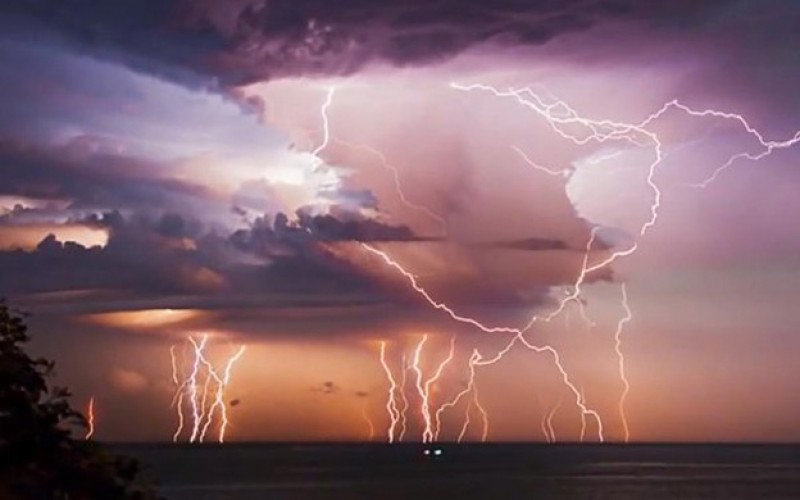Catatumbo lightning - Venezuela

Catatumbo lightning is a meteorological phenomenon that occurs in the basin of Lake Maracaibo in Venezuela, mainly in the southern part of the lake and in the lower basin of the Catatumbo river, from which its name derives. Scientists from the Scientific Modeling Center indicate that it is the most appropriate to talk about Catatumbo lightning, because it can come from several places each night, but from afar they are seen as if it were a single phenomenon.
This phenomenon is characterized by the appearance of a series of images that can be seen for the phenomenon, which occurs in clouds of great vertical development forming electric shocks between 1 and almost 4 kilometers in height, a measure that the winds associated with the Jet Low Level Nocturnal of the Lake Maracaibo Basin penetrate the surface of the lake in the afternoon hours (when the evaporation is mayor) and are forced into an ascendant by the Perijá mountain system (3,750 meters above sea level) and the Cordillera of Mérida, the Venezuelan branch of the Andes (up to 5,000 m, approximately).

The origin of this phenomenon is in the orographic effect of these mountain ranges that enclose and brake the northeasterly winds; thus, clouds of great vertical development are produced, concentrated mainly in the Catatumbo river basin. This phenomenon is very easy to see from hundreds of kilometers away, such as from Cúcuta, in Colombia, or from the lake itself (where there are usually no clouds at night). For this reason, it is also known as the Maracaibo Lighthouse, since the boats that sail the area can be seen during the night without problems at the time of sailing. It can reach up to 260 times a year and lasts up to 10 hours per night; In addition, this theme can reach 60 downloads per minute.
Although it is true that electrical storms produce a high amount of ozone, and the Catatumbo has the highest density of electrical discharges in the world, with more than 200 / km² / year, 1 2 3 is very unlikely that this ozone reaches the stratosphere and regenerate the ozone layer.4
I've read about this before, but these are the first good pictures I've seen. Thanks for sharing!
Upvote !!!
it is just magnificent to see this live! saludos
Asi e amigo, gracias por tu voto!!
This post has received a 0.71 % upvote from @booster thanks to: @paolaf2.